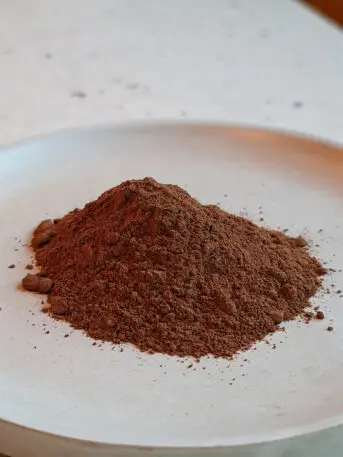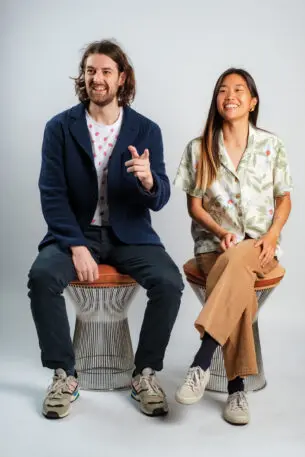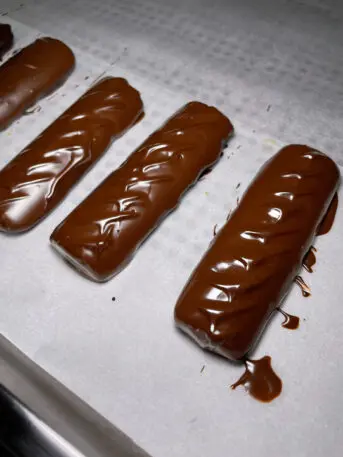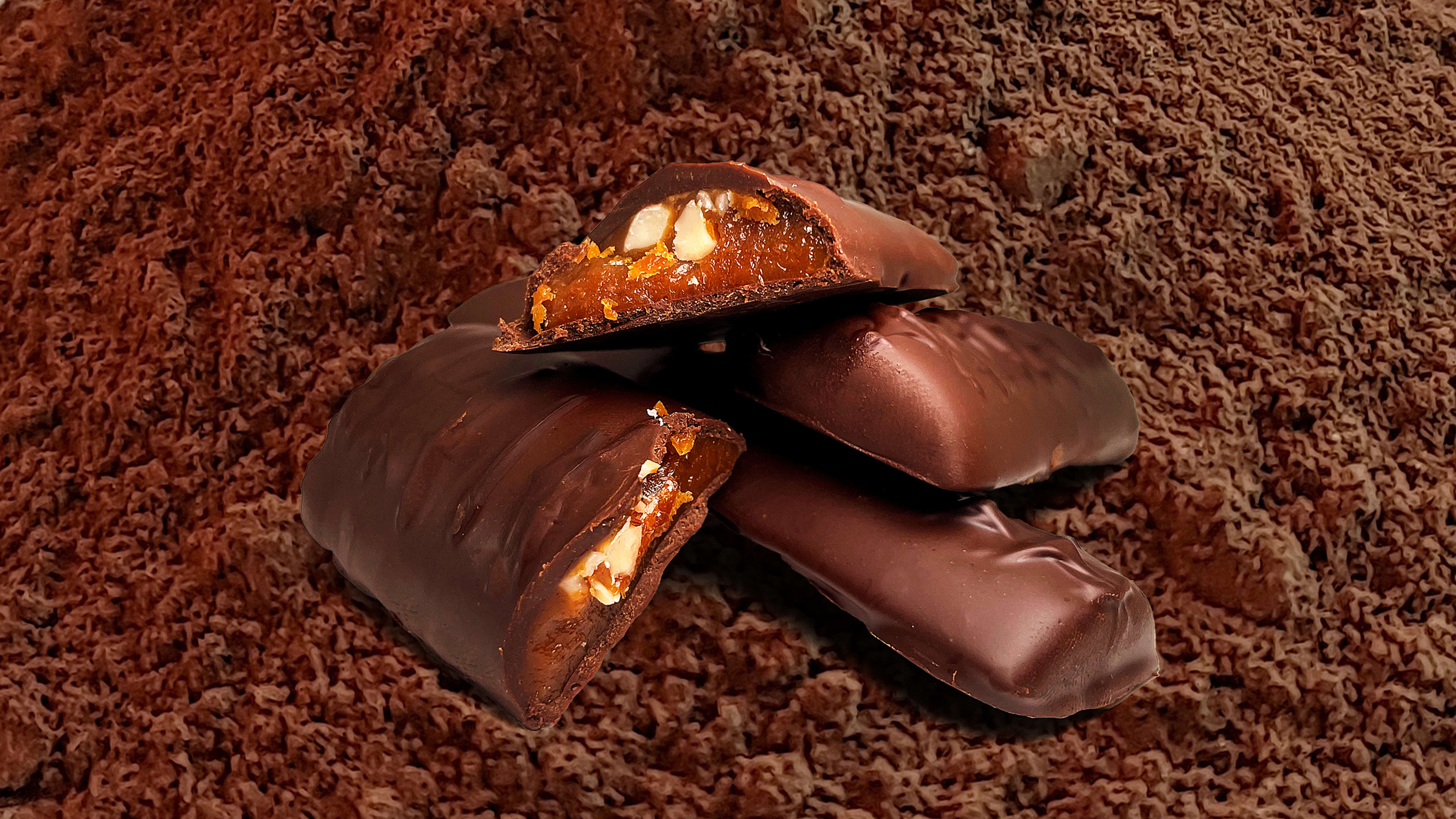I’m holding what looks like a typical piece of chocolate candy. It melts in my mouth like chocolate, and tastes like a blend of chocolate and hazelnuts. But it was made without cacao, the basic ingredient for every other candy bar on the market.
WNWN Food Labs (“win-win”), the London-based startup that developed the candy bar and announced new funding today, wanted to tackle the problems that exist in mass-market chocolate. In West Africa, where most cacao is grown, rainforests have been decimated to plant the trees; in the Ivory Coast, more than 80% of forests have now disappeared, along with wildlife like chimpanzees. Cacao is grown illegally in national parks and other protected areas. Pound for pound, chocolate has a higher carbon footprint than most meat. And despite chocolate companies promising to end child labor in their supply chains more than two decades ago, it’s still a widespread problem.

As climate change causes more extreme heat and drought, it will also keep getting harder to grow cacao. “We need to come up with new alternatives in order to continue eating chocolate the way that we do,” says WNWN CEO Ahrum Pak.

Pak’s cofounder, Johnny Drain, a materials scientist, previously spent years working with high-end restaurants like Noma. “My job was to create new flavors and ingredients and build menus, and also go in and kind of be like a flavor wizard and understand why the things taste the way they taste,” he says. Drain (who incidentally grew up near the Cadbury chocolate factory) had wondered about potential chocolate alternatives after he once cooked potatoes at his parents’ home and noticed a chocolate scent. “I started digging around, and there are compounds in the skin of potatoes that are also found in chocolate,” he says.
To develop the new cacao-free chocolate, the team explored a long list of potential ingredients. “We’re delving into tables of chemical compounds of what fingerprints a particular crop has, comparing it to cocoa, and trying to figure out how we can splice together different whole ingredients to recreate this flavor profile of cocoa,” Drain says. Two key ingredients are carob and barley. In traditional chocolate, cocoa beans are fermented and roasted before they’re mixed with sugar; the startup does the same thing with its ingredients.

While any two types of chocolate might taste completely differently from each other—a handcrafted dark chocolate bar is obviously not like a typical supermarket candy bar—WNWN is aiming to recreate the latter. “The horrors around cocoa have happened not in the high-end bean-to-bar craft chocolate world, but they happen in mass-market chocolate,” says Drain. “So that’s the benchmark and that’s where we want to relieve the pressure points in the chocolate and cocoa supply chain.”
With a new funding round of $5.6 million, led by the food tech VC firm PeakBridge, the startup is now building out its own R&D facility, hiring more staff, and preparing for its first full product launch later this year in the U.K. (A limited edition sold out last year, and won “best finished product” at the World Confectionary Conference, competing against traditional candy.) The ultimate goal, though, is to begin to work with large chocolate brands and to make bigger changes in the supply chain.
Current mass-market chocolate is cheap to make, but the alternative can also be. “It is possible to be at parity with that type of chocolate,” says Pak. “That’s why we’ve chosen the ingredients that we [use], and why we pursued the type of fermentation that we do as well—because it’s always about scalability and with price in mind.” The company is also considering ingredients that could be grown sustainably in regions that currently grow cacao, offering farmers a chance to potentially make a better living.
Recognize your brand’s excellence by applying to this year’s Brands That Matter Awards before the early-rate deadline, May 3.
